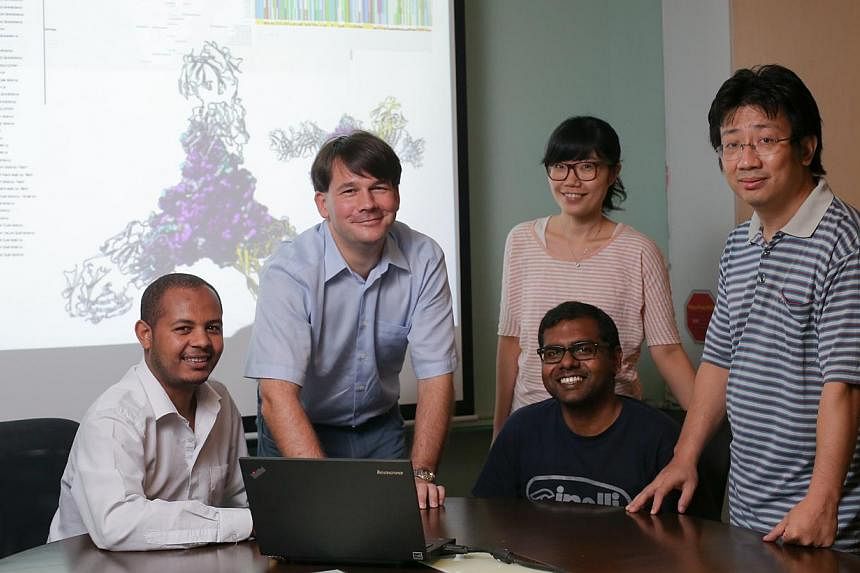Singapore is lending a hand to fight Ebola even as the deadliest outbreak of the virus in history continues to rampage through West Africa, having already killed more than 2,500 people in Guinea, Liberia and Sierra Leone.
Scientists from the Agency for Science, Technology and Research (A*Star) are tracing how the virus has evolved by comparing strains from the first outbreak in 1976 to the one today.
By examining how epitopes - parts of the virus' proteins that certain human antibodies can attack - have changed over time, they are trying to find out what precise mixture of antibodies would be most effective when used in a treatment or vaccine.
These mixtures are already used in experimental treatments such as ZMapp, which was developed in the United States and Canada and credited with saving the lives of several Ebola victims last month. It comprises three specific antibodies.
But its manufacturers exhausted supplies of the drug soon after. And some patients treated with it did not survive.
Dr Sebastian Maurer-Stroh, senior principal investigator at A*Star's Bioinformatics Institute, hopes to find a mixture of antibodies that "works the best". "This work is important because there have been different outbreaks before... the antibodies extracted from those survivors may not work for the current outbreak if the epitopes are too different."
The World Health Organisation (WHO) and some scientists think antibodies taken from the blood of survivors is the most promising option of a cure for Ebola, which has no proven treatment so far.
The A*Star team is working with scientists from the La Jolla Institute for Allergy and Immunology and the San Diego Supercomputer Centre, both in the US.
Even if antibodies were extracted from survivors of the present outbreak, it would take years before a drug based on these could be tested and used, said Dr Maurer-Stroh.
Ebola is a form of haemorrhagic fever suspected to originate from fruit bats in Africa. It spreads through direct contact with the blood, faeces or sweat of people infected, causing vomiting, diarrhoea and internal bleeding. Few survive it, with 50 per cent to 90 per cent of victims dying within one to two weeks.
There have been at least seven outbreaks of Ebola in Africa, including major epidemics in 1976, 1995 and 2000 that killed about 1,000 people in total.
On Aug 8, the WHO declared this year's epidemic a global public health emergency. Countries have been on alert in case air travellers carry the virus with them.
An experimental vaccine is being tested on humans at the University of Oxford in Britain, and the US is preparing to send 3,000 military personnel to help with medical support.

